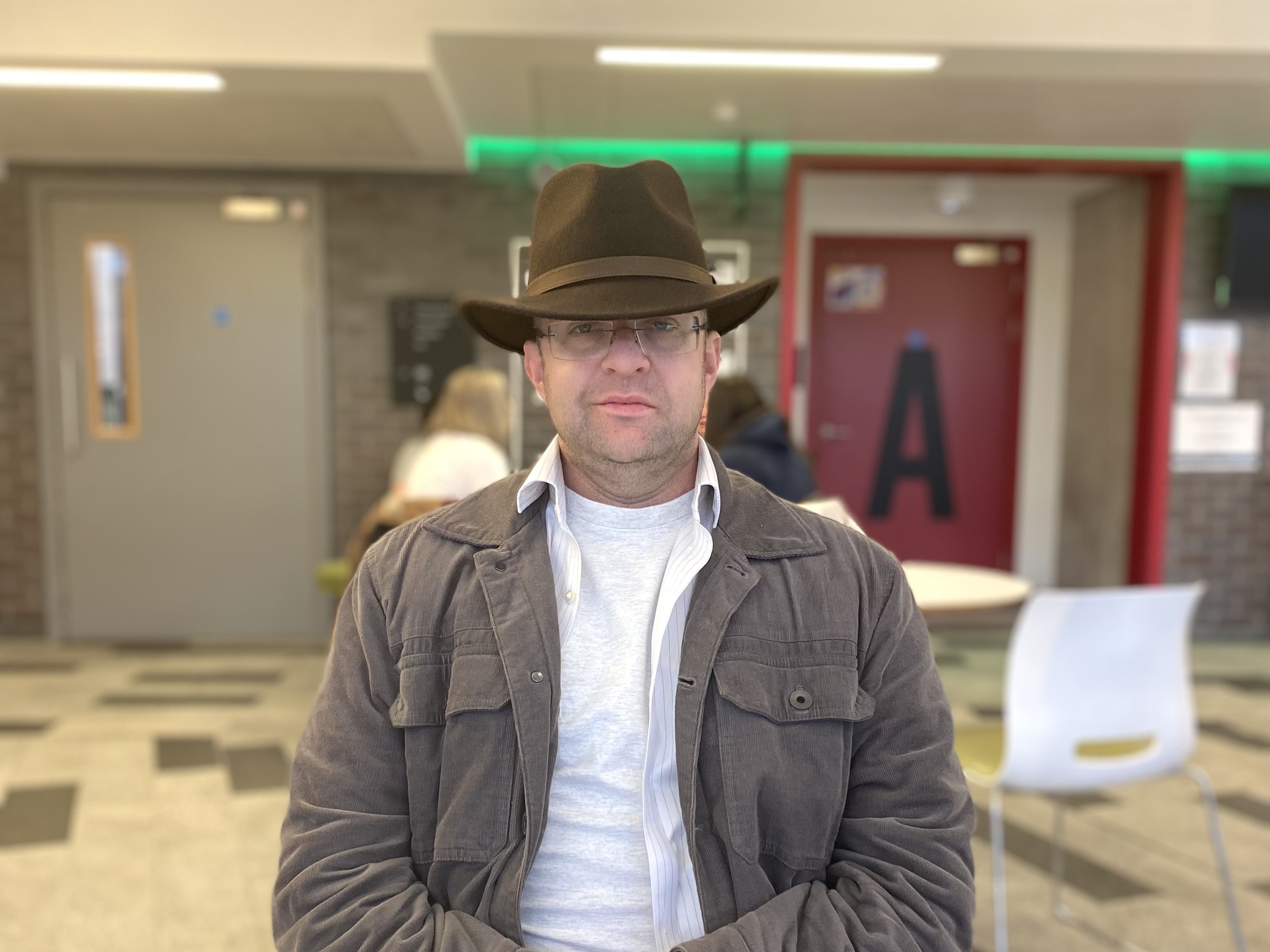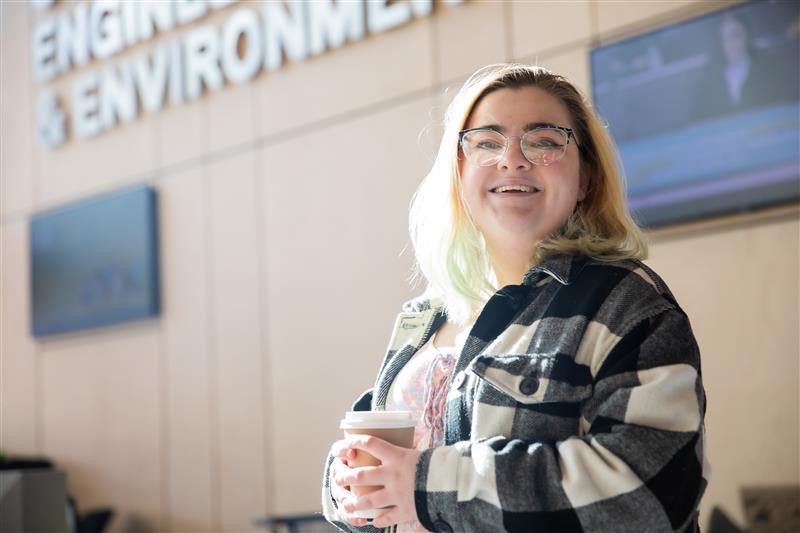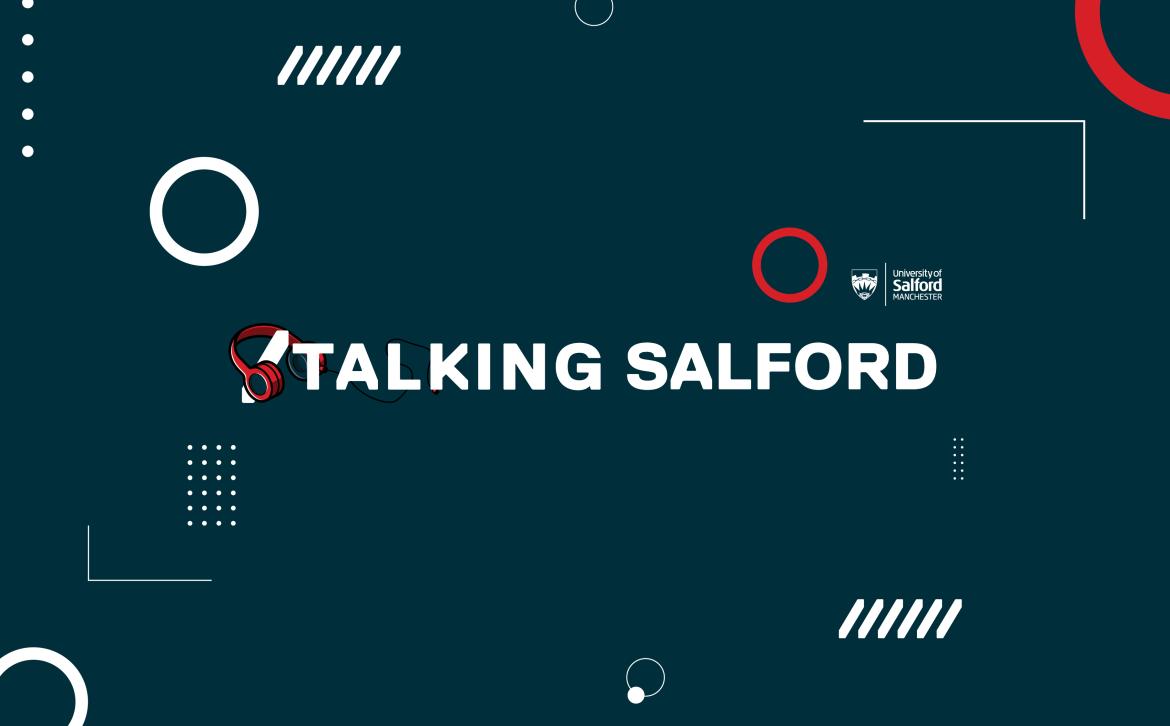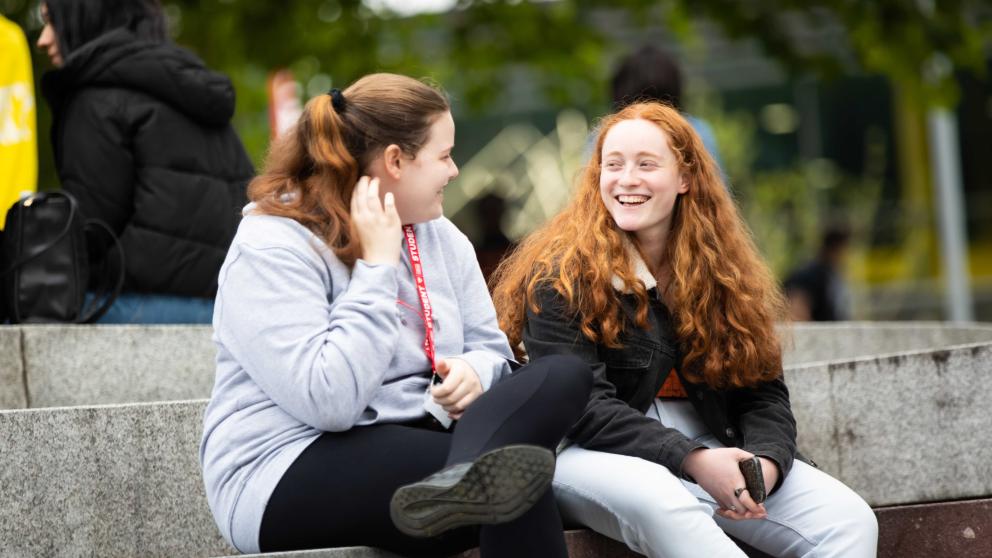Neurodiversity
There is no right way of thinking, learning, or behaving. We’re determined to create an inclusive community that gives everyone an equal chance to thrive, a culture where developing an understanding and awareness around neurodiversity is everyone’s priority.
Neurodiversity Celebration Week
Neurodiversity Celebration Week is a worldwide initiative about celebrating neurological differences. It aims to challenge stereotypes about neurological differences and transform how neurodivergent people are perceived and supported in society. To celebrate the week, our neurodivergent students share their experience at Salford and what they would tell current students.
Matthew's Story

Matthew, MA Adult Nursing student, tells us about his experience as an autistic and ADHD student at Salford.
"Be proud of who you are, not what you are! Take on board that there will be things that’ll challenge you in life, and you’re going to find certain things harder than other people, but be proud of who you are and gain confidence that you will be able to do things. You will be happy!"
Ellie's Story

Ellie, BA English and Drama student, tells us about her ADHD diagnosis journey and life as a neurodivergent student at Salford.
“ADHD affects me in everyday life with time management and distractions, but it gives me such wonderful creativity and passion for my studies and my job! I have a passion for the course I do and for my job as a Student Content Creator for the University. People here are so welcoming and, if I’m struggling to focus because of my ADHD, everyone around me is so understanding.”
Ali's Story

Ali, MA Contemporary Performance Practices alumni, tells us her takeaway after Salford and what she would tell current students.
"I would tell my younger self not to ignore the signs of neurodivergence. I burnt myself out at university by masking and trying to fit in with everyone else. Read, listen, and learn as much as you can about neurodiversity and find a way to hold its hand, rather than push it away. Accepting yourself makes a huge difference.
Talking Salford Podcast with Nick Ransom
Hear from Salford Alumni, Nick Ransom on his autism diagnosis journey and becoming a groundbreaking journalist and neurodiversity campaigner on the Talking Salford podcast below.

Explore our support
Browse the topics below to find out about the support available to ensure that you thrive and have equal access to study.
How we can help you
Making connections
University isn’t just about studying. It’s the time to make connections and discover yourself. It’s OK to be nervous – that's normal. We have several opportunities, resources, and services to help you make connections during your time at university.
- Join the Disability Society on the SU website
- Join the online Health and Society Neurodiverse Student Collective to share your experiences and receive support
- Check What's On to see events happening around and on campus
Learn more about making connections at Salford.
Quiet Spaces on Campus
Looking for quiet spaces to recuperate after a lecture? We’ve created a blog post filled with several quiet spaces on campus for you to utilise during your time at university.
Wellbeing and counselling
Disability Support
For students who have a disability, long-term condition or learning differences, we offer support and/or adjustments for your time at university. To ensure that you get the right support, register with our Disability Inclusion Service (DIS).
Report It
Hate crime and bullying are never OK. If you experience (or witness) concerning behaviour, let us know via Report It to ensure you, or the person affected, are supported and to help prevent things like this from happening in the future.
This is a safe and confidential way to report a hate crime and is handled by our expert Respect, Culture and Behaviours team. It's not an official report, but if you do want to report it officially, the team can support you with this.
You can also report anonymously, but by not providing your name or contact details, we cannot offer you support or take action against your report. However, it will allow us to identify any emerging issues we need to respond to.

